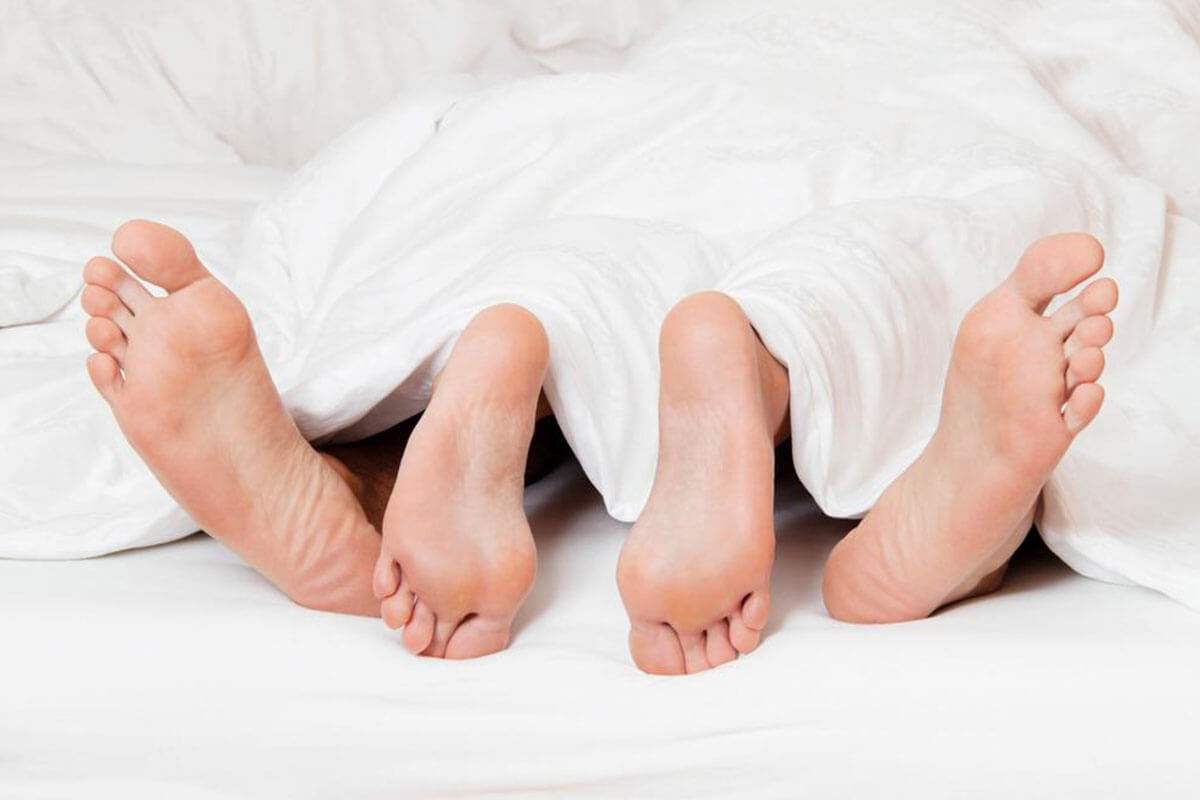What You Can Do to Prevent Painful Intercourse during Menopause

During menopause, many women experience physical as well as emotional symptoms that are caused by hormonal imbalances. Here is a list of things that you can do to prevent painful intercourse during menopause.
The time period when women stop menstruating is known as menopause. It occurs as a result of hormonal imbalances that are usually caused by old age. Contrary to popular belief, menopause is not just the end of the fertility in women, it can cause a number of distressing symptoms like hot flashes and night sweats. The symptoms of menopause differ from one woman to another, and some may find it more upsetting than the others. Some of the symptoms of menopause include hot flashes, sleep troubles, irregular periods, mood swings, depression, vaginal dryness, fatigue, and a loss of libido.
Menopause can cause the moist and soft feeling of the vaginal lining to disappear, thereby leading to vaginal dryness. When you do experience this symptom, you will realize that the tissue in your vagina becomes thinner, less elastic, and drier. The glands that used to react to sexual stimulation and produce lubrication, become less responsive during menopause. This lack of lubrication can and often does lead to painful intercourse during menopause. Around 25 to 45 percent of women have reported experiencing painful intercourse during menopause.
However, it is not necessary to stop having sex altogether. Truth be told, there are many women who report that they enjoy sex more after menopause. You just need to take a little more care while having it. Here is a list of things that you can do to prevent painful intercourse during menopause.
- Do Not Rush Into It
Take your time. Your sexual responses tend to slow down with age, so it is important to talk to your partner about these changes. Give yourself time to learn each other’s changing needs and changing bodies. Old age affects both men and women, women go through menopause, while in men the blood flow to the penis is affected. Not only does this affect the strength of an erection, but it also affects the duration of the erections. Prevent painful intercourse during menopause by taking your time and changing your lovemaking habits. Make the most out of every sexual experience and enjoy it thoroughly.
- Use a Lubricant
One of the reasons that can lead to painful intercourse during menopause is the dryness of the vagina. The vaginal dryness can cause burning and itching, which is exacerbated during intercourse, thereby making it extremely painful. For several women, vaginal dryness may be subtle and not cause that many problems. However, for others it may be the number one reason for painful intercourse during menopause. In order to prevent this, it may be enough to take more time for foreplay. But, if this does not work, there are a number of lubricants available that seem to do the job. Some examples of these lubricants are KY Jelly, Astroglide, olive oil, baby oil, petroleum jelly, and Replens.
- Stretch your Muscles
Stretch the muscles of your hip and buttocks by performing exercises that work on them. Squatting exercises help increase the strength in the muscles of your hips and buttocks. You can also work on the hamstrings, inner thigh muscles, and pelvic muscles by stretching and holding them static for around 30 seconds. Prevent painful intercourse during menopause by doing these stretches twice a day.
- Spice up your Sex Life
If you think that old age is not a time to spice up your sex life, you would be so wrong. When your sex life is affected due to menopause, you may need to compensate in other areas. This is the time to be creative and to let your imagination run wild. Deviate from your routine, engage in sexual activities at different places and at different times. Wear sexy lingerie that you never thought you would wear before, talk dirty to your partner and talk about sex. Do not focus on the problems of menopause, instead focus on its advantages. You do not have to worry about using contraceptives or unwanted pregnancies any more. Take your mind off the painful intercourse during menopause by making you sex life exciting.
Remember, painful intercourse during menopause does not mean your sex life is over. Exercise regularly to strengthen your muscles, make use of the lubricants, take your time with the foreplay, and deviate from your normal sexual routine. Doing these things will go a long way in preventing painful intercourse during menopause.


